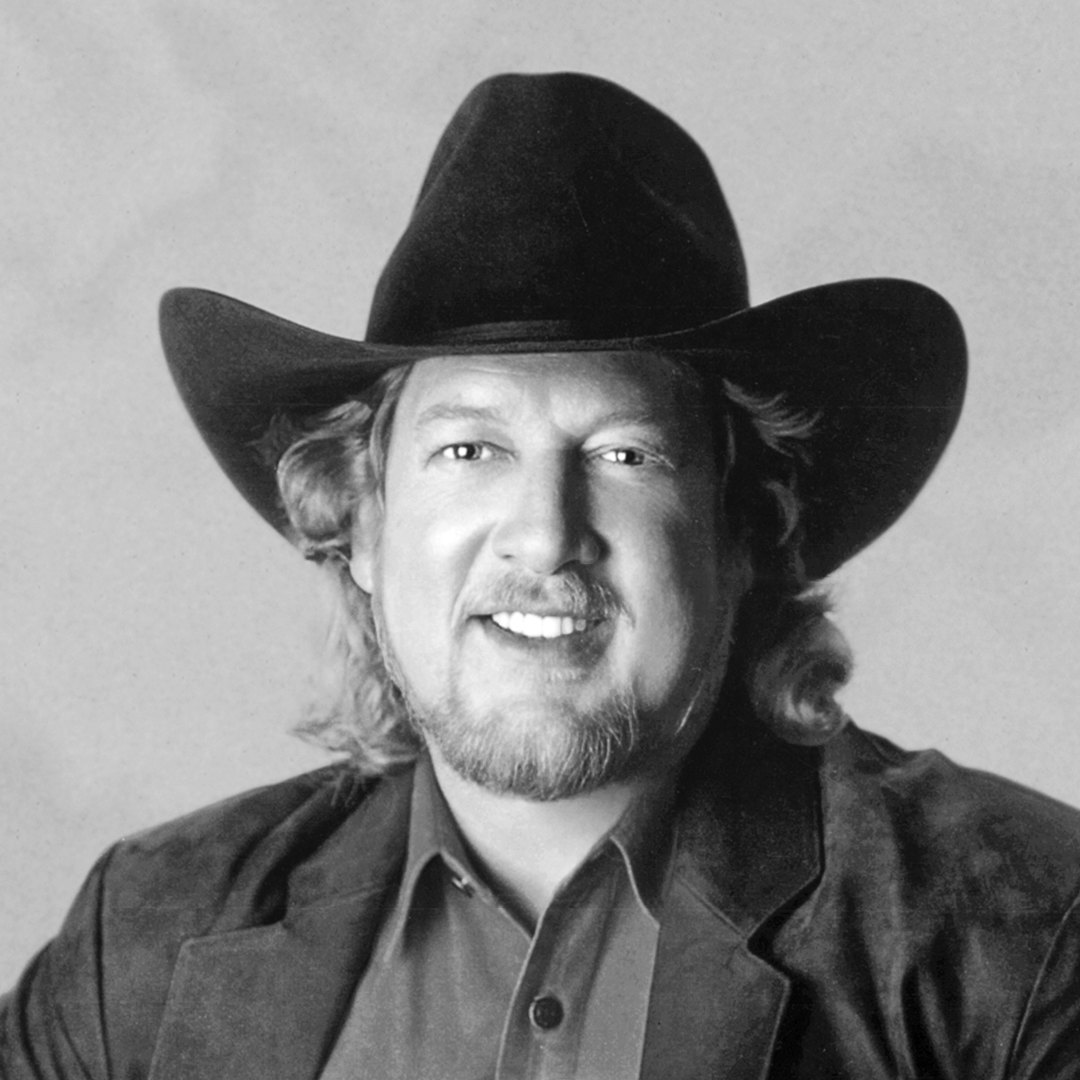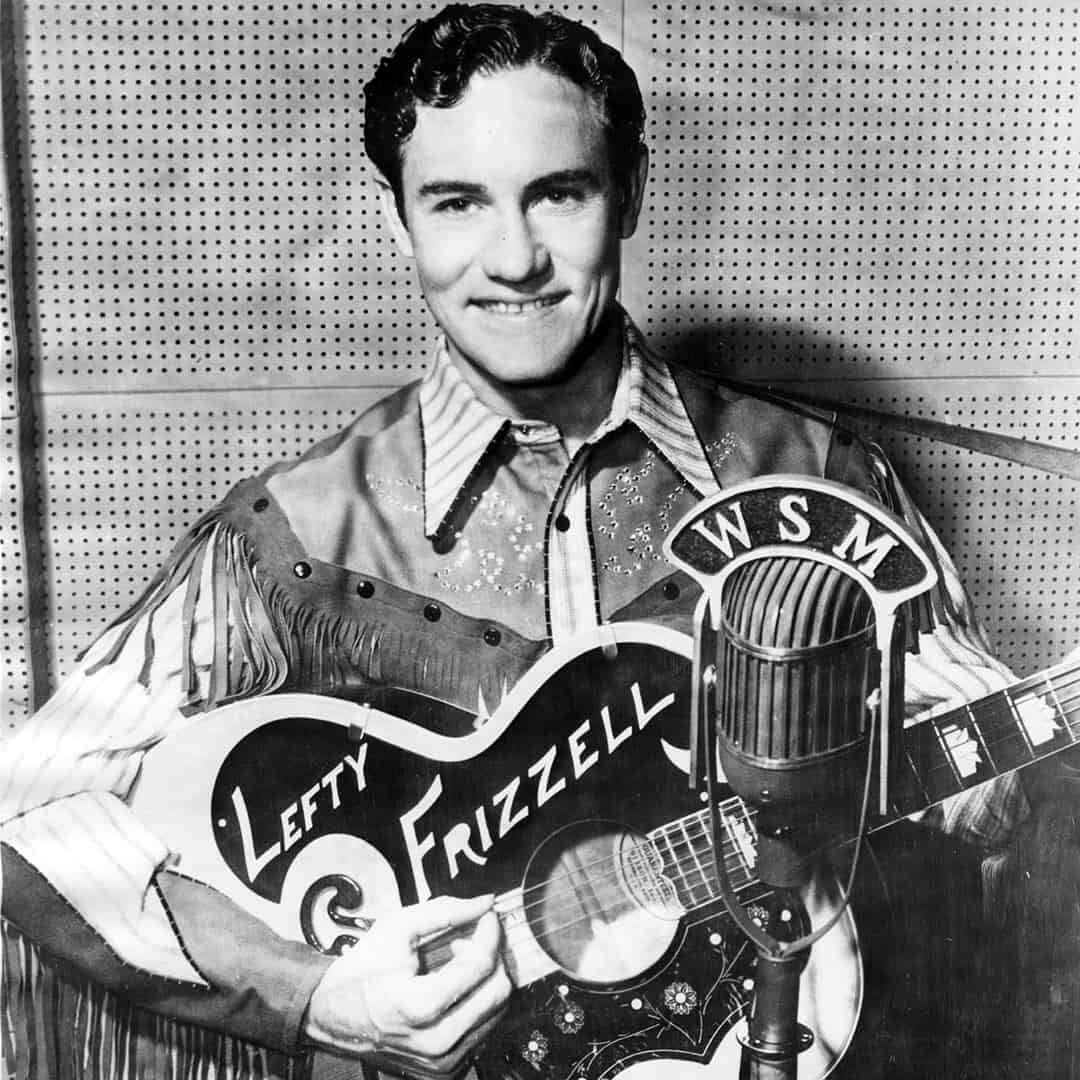John
Anderson

-
Inducted2024
-
Born
December 13, 1954
-
Birthplace
Orlando, Florida
In 1980, Merle Haggard invited John Anderson to open a series of his concerts, even though Anderson’s newly released debut album had yet to score a hit or generate significant sales. During the first weekend of the tour, Haggard invited the newcomer onto his bus. He wanted to tell Anderson how much he loved his new single, “Your Lying Blue Eyes.”
Before Anderson could respond, Haggard leaned closer. “Do you love it, son?” A pause. ”Do you really love it?” By then, Anderson knew Haggard was speaking about a love of country music and its traditions that transcended particular songs. Anderson fixed his earnest blue eyes back on those of his idol and said with a quiet firmness.
“Yes, sir, I really do.”
00:00 / 00:00
00:00 / 00:00
00:00 / 00:00
An Early Commitment to Music
Today, after recording and touring for nearly fifty years, hitting major commercial peaks in two different decades, and surviving two significant health scares, Anderson remains as committed as ever to his chosen career. “I moved to Nashville to sing country music,” Anderson said. “It’s all I’ve ever done. I had no backup plan.”
Born on December 13, 1954, Anderson grew up in Apopka, Florida, amid endless rows of orange groves, when Central Florida was a paradise for outdoorsmen, before the arrival of Disney World and other massive theme parks. By the seventh grade, Anderson was already playing in garage rock bands with his friends, and by the age of twelve he had made up his mind to be a professional musician. But it was hearing the songs of Haggard and George Jones that turned him toward country music and set his sights on Nashville.
Shortly after finishing high school, Anderson moved to Music City. At first, he shared an apartment with his older sister Donna, an aspiring singer who had begun performing regularly in the city’s music clubs. Anderson soon joined her onstage, sometimes performing as a duet, and sometimes each one leading the band on their own.
Word began to spread about this young country singer with the highly distinctive voice. Anderson found an important advocate in Al Gallico, a nationally connected music publisher. With Gallico making the introductions, Anderson signed a recording contract with Warner Bros. Records in 1976.
-

John Anderson, 1984. Photo by Walden S. Fabry Studios.
-

John Anderson c. 1980s.
-

John Anderson recording at Columbia Studios, 1983.
-

John Anderson making handprints in cement at the Six Flags Stars Hall of Fame in Orlando, Florida, 1983.
-

John Anderson and Emmylou Harris performing in 1983.
-

From left: John Anderson, Merle Haggard, and Haggard's dog, Tuffy, 1983.
-

BMI Nashville executive Frances Preston and John Anderson share a porch swing as his single “Swingin’” enjoys massive success, 1983.
-

John Anderson, 1992. Photo by Richard Gloyd.
-

From left: Doug Supernaw, Jesse Hunter, John Anderson and Kenny Chesney at the Country Radio Seminar, 1995.
-

John Anderson publicity photo, c. 1997.
Acceptance by His Heroes
Anderson’s initial Warner Bros. albums earned critical acclaim, and his hard-country style drew the support of his heroes. In addition to Haggard, George Jones and Willie Nelson gave Anderson opening slots on their national tours, providing him with important exposure to crowds that favored traditional country music. Anderson’s rootsy vocal style, with its sliding vowels and slurring, drawn-out notes, started to convince country radio just how expressive and entertaining Anderson could be.
His sixth Warner Bros. single, the Haggard favorite “Your Lying Blue Eyes,” became his first Top Twenty hit. Starting in late 1980, Anderson kept returning to the country Top Ten with one fresh-sounding track after another, including “1959,” “I’m Just an Old Chunk of Coal,” “Chicken Truck,” “I Just Came Home to Count the Memories,” and “Would You Catch a Falling Star.”
In the early 1980s, Anderson was in the vanguard of country music’s strong and welcome return to the music’s bedrock sounds. His hit records helped lead and define the New Traditionalist movement that would come to include several Country Music Hall of Fame members who came in his wake, including Ricky Skaggs, George Strait, Reba McEntire, the Judds, and eventually Randy Travis. Two of Anderson’s signature records from that era—the million-selling single “Swingin’” and the widely covered “Wild and Blue”—capped an enormously successful period for the young Floridian. In 1983, he won both the CMA Horizon Award and its Single of the Year honor for “Swingin’.”
By the late 1980s, the same youth movement Anderson helped start had brought on a new generation of country stars, many mining the same traditional country music influences as Anderson. In 1987, he left Warner Bros. over a dispute about the label’s support. He subsequently joined the rosters of MCA and then Universal/Capitol for a spell, but during that period he struggled to get much radio play, and the sales of his albums and concerts fell off.
In the early 1980s, John Anderson was in the vanguard of country music’s strong and welcome return to the music’s bedrock sounds.
Videos
“Money in the Bank”
“I’m Just an Old Chunk of Coal (But I’m Gonna Be a Diamond Someday)”
A Brand New Start
Then, propelled by the smash hits of “Straight Tequila Night” and “Seminole Wind,” Anderson came roaring back in the 1990s on RCA subsidiary BNA Entertainment. Other major hits, including “When It Comes to You,” “Money in the Bank,” and “I Wish I Could Have Been There,” put Anderson back on top again—on the charts and on the concert trail.
Inevitably, the run of hits slowed. This time, however, because of the status he had achieved as his catalog of country classics expanded, Anderson enjoyed touring income far beyond what he had achieved in the past. In 1993, Anderson won the Academy of Country Music Career Achievement Award. Overall, he has earned twenty Top Ten country hits, five of which reached #1. In 2014, Anderson was inducted into the Nashville Songwriters Hall of Fame.
In the twenty-first century, a new generation of country stars, many influenced by Anderson, began collaborating with their idol. His musical partners included John Rich, of the hit duo Big & Rich, who produced Anderson’s 2007 album Easy Money. In 2020, rocker Dan Auerbach of the Black Keys and his Easy Eye Sound partner Dave Ferguson brought Anderson back into the studio to record a new album, Years. Among the highlights was Anderson’s duet with longtime fan Blake Shelton on “Tuesday I’ll Be Gone.” Following Years, Auerbach assembled a tribute album to Anderson—Something Borrowed, Something New—that included such famous fans as Luke Combs, Ashley McBryde, and Eric Church.
Jamey Johnson, another Anderson devotee, addressed what has made Anderson such an enduring and powerful presence in country music over the decades: “You won’t find any other voice that sounds anything like John Anderson,” Johnson said, after sharing a Nashville concert stage with him in 2015. “He puts so much soul and so much passion into every song he does, but I’m not even sure those things are the reasons he sounds so unique. He just does.”
With his election to the Country Music Hall of Fame, John Anderson has fulfilled not only a long-held dream, but also confirmed what his idols Merle Haggard and George Jones saw in him when he arrived on the scene.
“They ask just what this means,” Anderson said of his election to the Hall of Fame. “This is an institution that preserves greatness. I know it is because I have many dear friends that are in the Hall of Fame, people like Ernest Tubb, Minnie Pearl, Loretta Lynn, Porter [Wagoner], Little Jimmy Dickens, and of course George and Merle, who I was fortunate to run with and do shows. That I get the chance to be amongst this kind of greatness, words can’t explain.”
—Michael McCall



